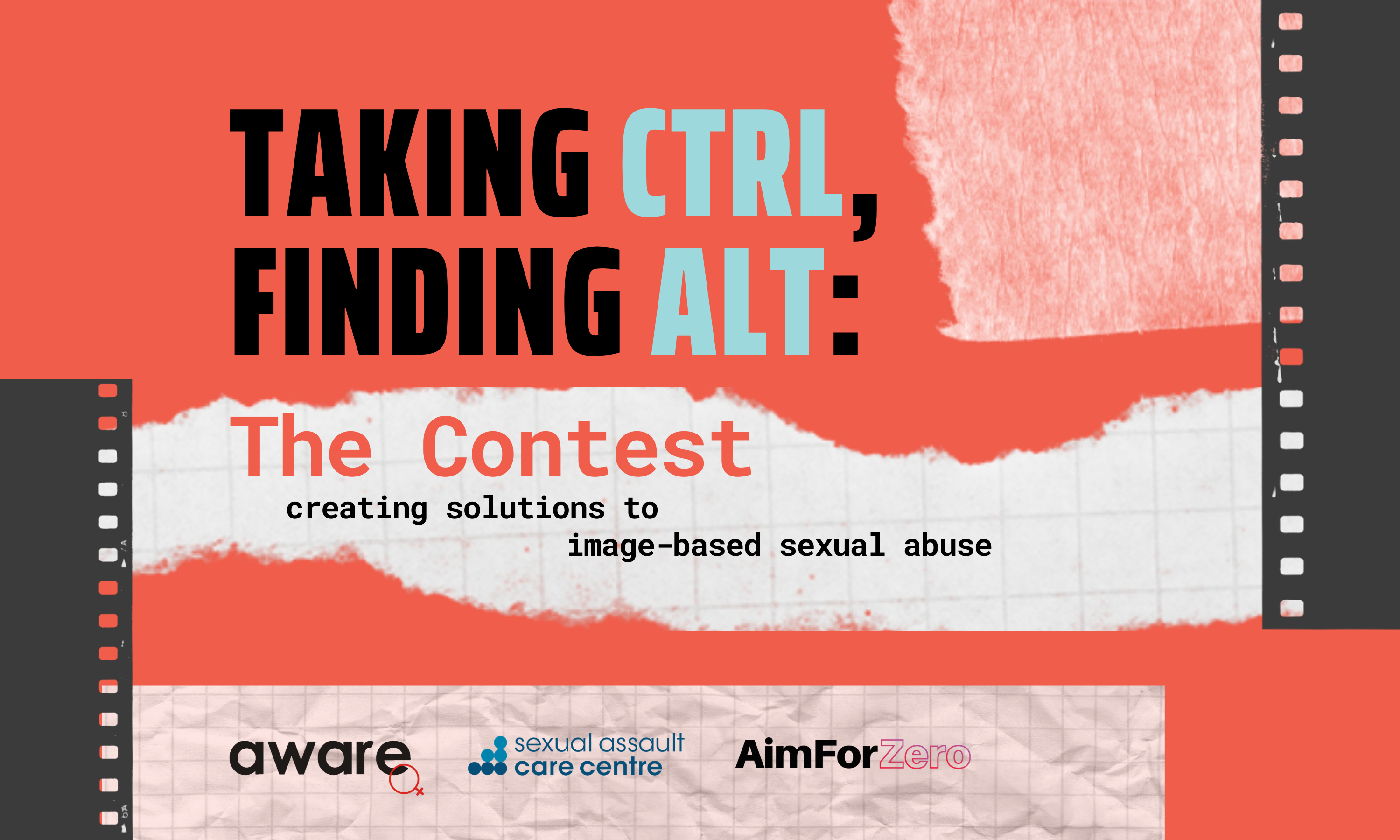-
Advocacy Theme
-
Tags
- Abortion
- Adoption
- Caregiving
- CEDAW
- Disability
- Domestic Violence
- Domestic Workers
- Harassment
- Healthcare
- Housing
- International/Regional Work
- Maintenance
- Media
- Migrant Spouses
- Migrant Workers
- Muslim Law
- National budget
- Parental Leave
- Parenthood
- Polygamy
- Population
- Race and religion
- Sexual Violence
- Sexuality Education
- Single Parents
- Social Support
- Sterilisation
- Women's Charter
AWARE announces winners of Taking Ctrl, Finding Alt contest to combat technology-facilitated sexual violence
March 10th, 2020 | Gender-based Violence, News, Press Release

This post was originally published as a press release on 10 March 2020.
10 March 2020 – Gender-equality organisation AWARE today announced two winners for its contest Taking Ctrl, Finding Alt, which aimed to crowdsource and develop solutions to technology-facilitated sexual violence (TFSV).
Taking Ctrl, Finding Alt was launched on 25 November 2019, accompanied by the release of new statistics on the TFSV cases seen by AWARE’s Sexual Assault Care Centre (SACC) between 2016 and 2018. Such cases, which include cyberharassment, digital voyeurism and non-consensual sharing of images, increased at SACC from 46 in 2016 to 124 in 2018.
The contest was designed in recognition of the fact that while professional organisations can help fight sexual violence, para-professionals and community-based organisations have a role to play too in educating members, offering support and reinforcing anti-sexual violence messages. With 23 entries in total, contest applications closed in January, and assessment of the entries was carried out through February.
Both winners will tackle image-based sexual abuse (IBSA)—a subset of TFSV that refers to the non-consensual creation, obtainment and/or distribution of private sexual images, as well as threats to do the above. The winners receive a funding package from AWARE, in addition to development support and specialised mentorship for a pilot phase over six months in 2020. Both projects will be evaluated for their impact by 25 November 2020.
“With cases of image-based sexual abuse mounting at SACC in recent years, we know that this particular type of sexual violence needs urgent attention and action,” said AWARE Executive Director Corinna Lim. “The platforms on which TFSV occurs often determine how it is addressed, but we need holistic, community-based solutions instead. It’s fantastic to see energetic young problem-solvers identifying these survivor-centric gaps in the landscape.”
Winning Project: Providing Avenues to Take Action
The burden of responding to IBSA is often borne solely by the affected individual, especially if they do not feel comfortable reaching out for support. However, there is a noticeable lack of clear, actionable and Singapore-specific information on IBSA available online. This project aims to create a centralised website that those affected by IBSA in Singapore can turn to for clear, practical and up-to-date guidelines on taking action or finding support. The project will receive funding of $3,840.
This project is a collaboration between two researchers at the Lee Kuan Yew Centre for Innovative Cities (a research organisation based at the Singapore University of Technology and Design) and Students for a Safer NUS (a group made up of NUS students that seeks to build community support for survivors of on-campus sexual violence).
“We noticed that Singapore, unlike Australia and some other countries, lacks a centralised website that people facing TFSV can use to decide what actions to take,” said project leads Catherine Chang and Holly Lynn Apsley. “Since the Internet is the first place many of us go when we need help, we felt that there was an urgent need for such a place online. As researchers, we felt compelled to turn the latest research and best practices into a usable public resource. Alongside specific guides to different sites and platforms, we will also offer explanations of Singapore law, police procedures and pathways to access support.”
Winning Project: Image-Based Sexual Abuse Research
This research project explores the recourse available to survivors of IBSA in Singapore, whether they have applied for civil remedies or relied upon online platforms’ community guidelines and moderation standards. The project will undertake a series of structured interviews to examine survivors’ experiences, focusing on the effectiveness of available measures, their impact on survivors, and an evaluation of the limitations or potential failures of these systems. Through this, the project also aims to make recommendations for practices to better serve survivors of IBSA. This project will receive funding of $4,800.
Project lead Lee Yi Ting is a freelancer carrying out research, writing and security training. She is passionate about gender justice and sexual rights, and spends her time working with organisations in Singapore that are focused on the same.
“Gender-based violence in any form is unacceptable,” said Lee. “If we are invested in gender equality, we need to recognise TFSV and IBSA for what they are: criminal acts, deeply rooted in misogyny and power inequality, that cause profound damage and distress.”



